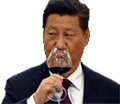
Beijing has responded to the U.S. export controls in two ways. First, it has retaliated against U.S. companies. In May 2023, China announced that U.S. chip maker Micron failed a cybersecurity review, a dubious claim that resulted in a ban on certain domestic sales of Micron’s memory chips. This likely contributed to a 49 percent drop in revenue year-on-year for Micron in FY 2023. China also blocked a planned merger between U.S. semiconductor giant Intel and Israeli firm Tower Semiconductor by failing to rule on the transaction before a deadline set by the companies. The two companies had waited over 18 months for a ruling.
Second, the export controls have galvanized China’s industrial policy and innovation agenda, which may threaten the U.S. semiconductor industry in the long term. China is channeling tens of billions of dollars into its domestic semiconductor industry through state-led investment funds, while forming new public-private partnerships and updating its tax incentives to boost its research capabilities. Meanwhile, it is pressuring its domestic companies to buy Chinese semiconductors, manufacturing equipment, chip design software, and other critical inputs, which provides those companies with more revenue to invest in R&D and capital. The U.S. export controls may be helping China achieve this goal. The New York Fed’s report found that Chinese firms targeted by the U.S. export controls formed new relationships with local Chinese firms to replace the now-prohibited commercial relationships with U.S. firms. These commercial relationships may not have formed if the targeted Chinese firms could still purchase U.S. products.
The export controls also heavily incentivize Chinese firms to innovate themselves. As these companies cannot rely on U.S. firms for advanced semiconductor technologies, they must innovate in-house or partner with non-U.S. firms to develop these technologies. In one prominent example, Chinese companies Huawei and SMIC partnered to develop a 7nm chip, an advanced semiconductor with capabilities that U.S. export controls were intended to prohibit. Preventing China from producing 7nm chips indefinitely was unrealistic, as these chips can be manufactured with equipment unrestricted by U.S. export controls. Nevertheless, the chip represents a breakthrough for the Chinese semiconductor industry, which it achieved at an impressive speed despite U.S. export controls. Huawei previously relied on Qualcomm for chips of this caliber, which may lose over $10 billion in revenue in 2024 due to lost sales.

Thank you for sharing @yogthos@lemmy.ml.



Yeah, fuck Harris (And Trump).